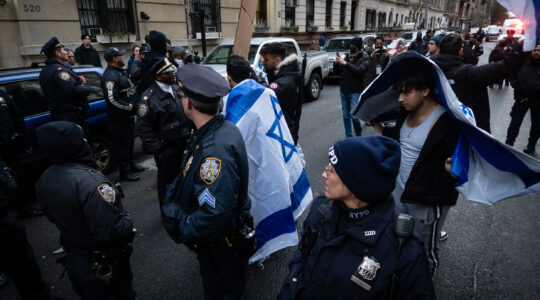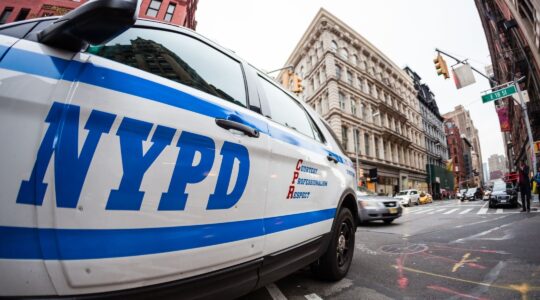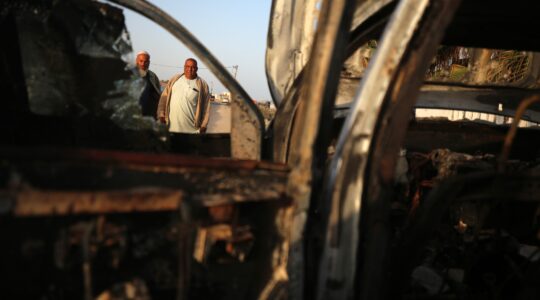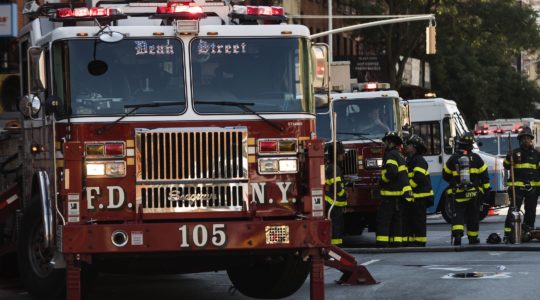FRANKFURT, Jan. 26 (JTA) — Two controversial exhibits on the German army’s role during World War II have revealed the rifts in Germany over this issue. The largest clashes occurred after neo-Nazis scheduled a rally to protest an exhibit titled “The War of Extermination: Crimes of the Wehrmacht.” The city of Dresden banned the scheduled march last week, but a court said there were no grounds for the ban because the rally’s sponsor, the right-wing National Party of Germany, is a legal political party. A fight broke out between demonstrators and counter-demonstrators traveling to Dresden. Eight people were injured, one seriously, and a train car was demolished. In the city itself, more than a thousand demonstrators, mostly youth, marched through the streets to protest the exhibit. The march was closely guarded by about 3,000 police officers, who sealed off the downtown shopping area to prevent violence. A counter-demonstration against the neo-Nazi march, organized by a group calling itself the Union Against the Right Wing, took place without clashes between the two groups. The protest was the largest neo-Nazi protest in Germany since a march in Munich last year also protesting the exhibition. The protesters claimed the exhibition branded all veterans of the World War II German army, the Wehrmacht, as criminals instead of honoring the vast majority for serving their country. The exhibition, which has been traveling around Germany for the past three years, focuses on the role the Wehrmacht played in the Holocaust and other Nazi crimes. Conservative politicians have claimed that the exhibition was one-sided, ignoring the numerous soldiers who resisted orders. Meanwhile, the conservative-led city government in Frankfurt has opened an exhibition on military resistance to the Hitler regime. City officials said the show was intended to balance the Wehrmacht exhibition, which was shown in Frankfurt last year. The opening over the weekend, however, was clouded by political disputes after the city invited and then retracted an invitation to the respected German historian Hans Mommsen. He has been critical of the German military resistance movement, pointing out that some of the leaders of the resistance against Hitler contributed to the Holocaust earlier in the war. Some historians and intellectuals who were scheduled to participate in events connected to the resistance exhibition withdrew their acceptance to protest the way Mommsen was treated.
Exhibits on World War II spark conflict in Germany
Advertisement





